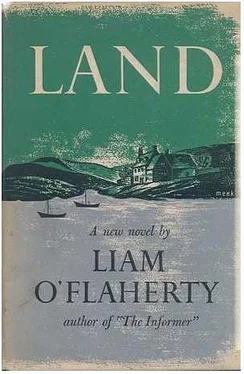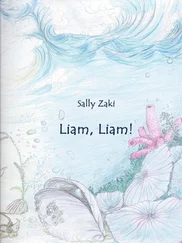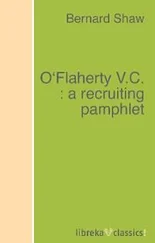Liam O'Flaherty - Land
Здесь есть возможность читать онлайн «Liam O'Flaherty - Land» весь текст электронной книги совершенно бесплатно (целиком полную версию без сокращений). В некоторых случаях можно слушать аудио, скачать через торрент в формате fb2 и присутствует краткое содержание. Город: London, Год выпуска: 2011, ISBN: 2011, Издательство: Bloomsbury Publishing, Жанр: Проза, на английском языке. Описание произведения, (предисловие) а так же отзывы посетителей доступны на портале библиотеки ЛибКат.
- Название:Land
- Автор:
- Издательство:Bloomsbury Publishing
- Жанр:
- Год:2011
- Город:London
- ISBN:9781448203888
- Рейтинг книги:3 / 5. Голосов: 1
-
Избранное:Добавить в избранное
- Отзывы:
-
Ваша оценка:
- 60
- 1
- 2
- 3
- 4
- 5
Land: краткое содержание, описание и аннотация
Предлагаем к чтению аннотацию, описание, краткое содержание или предисловие (зависит от того, что написал сам автор книги «Land»). Если вы не нашли необходимую информацию о книге — напишите в комментариях, мы постараемся отыскать её.
Land — читать онлайн бесплатно полную книгу (весь текст) целиком
Ниже представлен текст книги, разбитый по страницам. Система сохранения места последней прочитанной страницы, позволяет с удобством читать онлайн бесплатно книгу «Land», без необходимости каждый раз заново искать на чём Вы остановились. Поставьте закладку, и сможете в любой момент перейти на страницу, на которой закончили чтение.
Интервал:
Закладка:
“Blood in ounce!” Bartly said. “What are we to do now?”
Again he wanted to run away and hide, just as on the day of the rebellion, when the armed police came into view.
“We’ll do what we planned to do,” shouted Hernon, the fisherman. “We’ll force Mr. St. George to resign. Then you and Cleary and myself, the three men that asked St. George to become our leader, will lead the people back to the chapel in procession. There we’ll beg Father Cornelius on bended knees to forgive us and take command as before.”
Hernon was in “a holy rage.” He was a short and bull-necked man, with a skull that was almost perfectly round, stiff red hair and a freckled face. His little grey eyes were surmounted by huge eyebrows of a whitish colour, which gave him rather a ferocious appearance. He had formerly been a jolly man and very much addicted to drunken roistering. Then he got caught in a hurricane that took his nobby and his crew to the bottom of the ocean. He lashed himself to a raft and promised to lead a holy life if he escaped. That was how he became devout and fierce, instead of being a jolly toper.
“That’s all very well,” Bartly said, “but the Fenians are going to put a foot in all our plans.”
“To hell with the Fenians!” said Hernon. “The English Government will soon put them under foot. They deserve the worst that can be given to them, for they are against God. They are excommunicated by bell, book and candle-light. Every honest man will help the English put them down.”
Many of those present were outraged by this statement. Although opposed to the Fenians, because of panic, the thought of collaborating with the foreign tyrant against Irish patriots filled them with horror.
“It would only be a black traitor that would help the English to do no matter what to an Irishman patriot,” Cleary said. “I’m for the parish priest and against St. George, but I refuse to become a renegade.”
“I’m with you,” another man shouted.
Several other men shouted their approval of Cleary’s words.
“The Fenians are against God,” Hernon shouted. “They want revolution. The people want peace and lower rents. Down with the Fenians, I say.”
“Down with the Fenians!” shouted the majority of those present.
A violent argument ensued. McNamara ran from one group to another trying to restore order. It was of no avail. Blows seemed imminent. Men were spitting on their ash plants, pulling down their hat brims and flexing their shoulder muscles. Then they heard yelling in the square. Forgetting their quarrel, they all rushed to the door and opened it.
“Ho! By the Book!” cried Bartly. “Here comes St. George now, riding in his carriage like the Sultan of the bloody Moors.”
Raoul had crossed the little wooden bridge just as the head of a large throng, coming from the church, debouched into the foot of the square. The throng began to shout on catching sight of him. Most of the people brandished their sticks and reviled him. A small group of young men, however, ran forward and cheered his name. They formed a guard about his carriage with their bodies as he advanced. The hostile majority, although eager to do him violence forthwith, was without resolute leadership. So they merely pressed after him up through the square, shouting their hatred.
“Antichrist must go!” chanted those opposed to Raoul.
“Up St. George!” cried the small band of his supporters.
Raoul sat stiffly erect in his carriage, staring straight ahead, his right hand cupped under his left elbow, the fingers of his left hand caressing the tip of his beard. He was wearing his black hat, black cloak, velvet jacket and buckled shoes. The carriage, although newly painted and upholstered, was more than thirty years old and of a type long since become unfashionable. His dress and the carriage and his proud demeanour seemed to be in perfect harmony with the tragic face of nature and with the howling mob. Ahearn also seemed to have achieved dignity at this moment, as he sat on the high driving seat, straining to hold the agitated horse to a stately walk.
As the carriage neared the platform, the Constabulary came marching out from the demesne gate at a rapid pace. Sub-Inspector Lodge strode at the head of the column. The crowd became subdued on seeing the armed men. When the carriage halted, there was dead silence except for the rhythmic crash of marching feet.
Raoul dismounted and ordered Ahearn to drive away. The servant looked in mournful appeal at his master for a moment. Then he suddenly gave the horse its head. The frightened animal set off through the crowd at a mad gallop. There were wild screams from a number of people that were forced to jump hurriedly out of the way. Ahearn flicked several of them neatly on the rump with the end of his long whip, while pretending to lash the horse. He hated them at that moment for being disloyal to his master.
Raoul climbed on to the platform and looked about him. The bulk of the Constabulary had now come to a halt, in two ranks, on the outskirts of the crowd. They ordered arms and stood alertly to attention. A small force, led by Sub-Inspector Lodge, pressed towards the platform. The people made way for their advance, like water parting before the tall bow of a ship. Raoul waited until the Sub-Inspector and his men had reached the foot of the platform. Then he took off his hat, bowed to the people, leaned slightly against his cane and began to speak.
“People of Manister,” he said, “you asked me some months ago to become your leader. I accepted. We elected a Committee and gave it full power to rule over the territory occupied by you. Since then we have succeeded in destroying nearly all trace of the English Queen’s authority over that territory. We have imposed our own authority and made our writ run without any difficulty. We have Captain Butcher isolated and on the verge of destruction. We have completely eliminated the espionage system of the enemy. These are great achievements, in so short a time, by people unused to the exercise of power and to the possession of freedom. Alas! Freedom is not a gift that the few can bestow on the many. In order to be free, it is not sufficient for the people to defeat tyranny. Unless they have the souls of free men and unless they are jealous of their dignity, in the way that free men are jealous of it, the defeat of one tyrant merely leads to the seizure of power by another. That is what happened to you. You have withdrawn your allegiance from Captain Butcher and the English Queen, only to bow down in terror before the mumblings of priestcraft. You no longer wish me to remain at your head. You call me Antichrist and demand that I resign. I submit. Base though you are at this moment, you have the right to take away what you bestowed. I bow to your will.”
He bowed low in all directions. Then he glanced down at two sergeants, who were writing his words in their notebooks. He smiled and turned towards the people once more.
“I have no right to find fault with your fickleness,” he continued, “because it was my ancestors that made you slaves and taught you the habits of slavery over a period of six hundred years. These habits cannot be changed by the stroke of a magic wand. The soldierly virtues of free men can only be regained by you through torture of soul and body. What are these soldierly virtues? They are loyalty, discipline and dignity. Although I have put dignity last, it is the most important of the three. I put it last because it is the result of the other two. Already a few of you have attained these virtues. I refer to the gallant members of the Fenian Society. If you were all like the Fenians, as brave and resolute as they, you could sweep all enemies from your land at once.”
He raised his stick and pointed to the Constabulary.
Читать дальшеИнтервал:
Закладка:
Похожие книги на «Land»
Представляем Вашему вниманию похожие книги на «Land» списком для выбора. Мы отобрали схожую по названию и смыслу литературу в надежде предоставить читателям больше вариантов отыскать новые, интересные, ещё непрочитанные произведения.
Обсуждение, отзывы о книге «Land» и просто собственные мнения читателей. Оставьте ваши комментарии, напишите, что Вы думаете о произведении, его смысле или главных героях. Укажите что конкретно понравилось, а что нет, и почему Вы так считаете.












